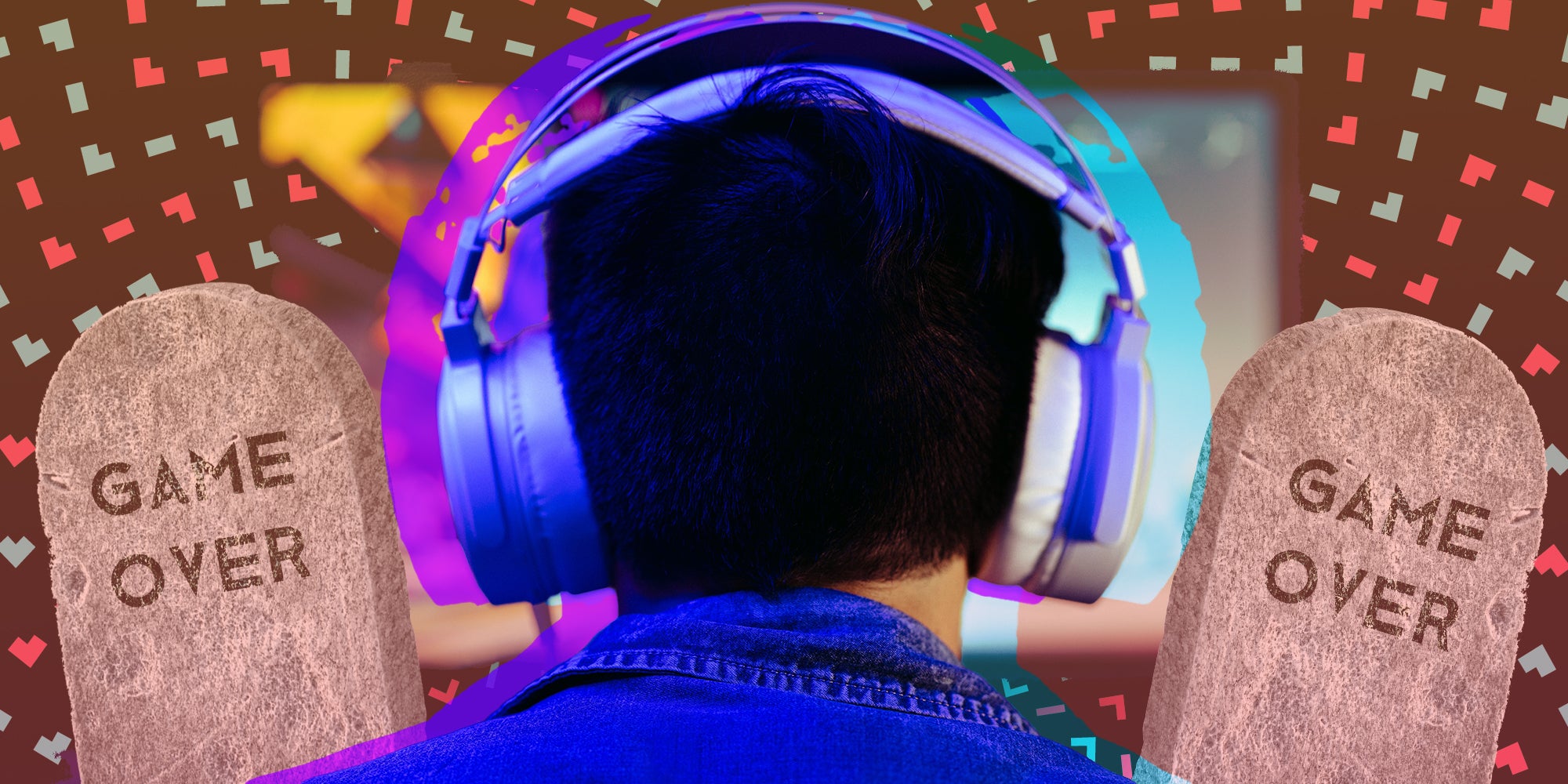CREATOR NEWSLETTER
Issue #190 | November 30, 2023
There’s something so disingenuous about the holidays for creators. Like oh, your Black Friday/Cyber Monday sales are a whole 16% off? Thanks, but I was so busy live-streaming on Twitch during Thanksgiving weekend to even clock it; I’d been hoping to earn enough in tips to fly home and see my family on Christmas but it turns out, Southwest Airlines doesn’t even take Bits, so…
That’s why Lon’s piece this week about the horrifying reality of people dying in front of virtual gaming audiences is so trenchant during this holiday season. It’s all very “Black Mirror,” or maybe even more appropriately, “Squid Game:” both the original series and the recent reality version. (Ironically, all three shows are now Netflix originals, which makes that $15.99 monthly subscription price totally worth it. Hi Ted, if you’re in the audience.)
In 2021, when Hwang Dong-hyuk’s “Squid Game” debuted on the streaming service, international audiences ate it up, no crumbs left. It was Covid’s pandemic era, and the dark satire bore a lot of similarities in its commentary to another South Korean hit, the 2019 Best Picture-winning “Parasite.” Both dealt with themes of class, poverty, and what people who have fallen into society’s ever-widening socio-economic gap would do to claw their way out of it. (Spoiler: inevitably, murder.)
THE COMMENTS SECTION
“Finally, the capitalistic anti-human hellscape depicted in the original Squid Game comes to life in the reality competition show version. I still can’t believe this exists without a grain of irony.”
– Kim Horcher (@kimscorcher) on the irony of “Squid Game: The Challenge”
“Squid Game” ended up becoming Netflix’s most-watched series, earning the streamer almost a billion dollars and 14 Emmy nominations; meanwhile, Dong-hyuk, who had forfeited the rights to his intellectual property, received no royalties from the program. The irony of screwing the creator of its hit techo-dystopic meta-satire about late-stage capitalism out of any future earnings or say over the IP was seemingly lost on the streaming service, which began production on its reality show version in the same month its Emmy nominees were announced.
Like the original series, “Squid Game: The Challenge” has contestants competing for a record-setting cash prize: approximately $3.3 million in the fictional version became $4.5 million for “The Challenge.” Which is both a life-changing amount of money for its players and a drop in the bucket for the sadistic billionaire Westerners for whom it is revealed the games were created as a gambling opportunity. (Notably, Netflix co-CEOs Ted Sarandos and Reed Hastings each earned over $50 million in 2022 after seeing double-digit increases in their salary packages thanks, in large part, to “Squid Game’s” success.)
In this too, one can find commentary about our modern living and economic insecurities, however on the nose and uncomfortable it may be. The original, fictional series condemned the elites who looked down on the so-called “dirt spoon” class of South Korea, who’d fallen victim to the country’s debt crisis by taking out high-interest rate loans or putting all their money into crypto. “Squid Game: The Challenge” sends the opposite message: Marketed as a “Hunger Games” competition, the appeal to the audience is the entertainment value in watching players endure physically dangerous and mentally torturous conditions for the chance to no longer live in poverty. (In just one example, the production literally ran out of condoms after competitors kept using the flavored lube as a desperate chapstick hack.)
And look, I get it. I, too, am watching “Squid Game: The Challenge” while actively rooting for certain contestants to get blasted with paintballs, both signaling their elimination from the show while also forcing them to absurdly fall on the ground and “play dead” as an extra humiliation bonus. But I equally hope that the players all get together for a rumored class action lawsuit against Netflix and the production company behind the show in the same way I hope the families of fallen Twitch streamers end up taking the platform to civil court.
Because entertainment shouldn’t be a fatal activity, making fans and consumers complicit in preventable harm and death. After all, aren’t we just looking to distract from the fact that most of us are only one bad credit statement away from subjecting ourselves to the exact same dehumanizing, sum-zero games?
Bread and circuses are available now on your favorite subscription streaming services; the 21st century really can’t stop thinking about the Roman Empire.
– Drew Grant, Managing Editor
STREAMING
Livestreaming Should Not Be a Life or Death Scenario
Why creators occasionally die during streams and what we can do about it.
By Lon Harris, Passionfruit Contributor

SPONSORED

Experience the ultimate POV camera
GoPro’s all-new HERO12 Black is the world’s most versatile and featured-packed camera. With over 40 mounts and accessories, the HERO12 Black lets you capture unimaginable perspectives in places only a GoPro can go. Shop now, and for a limited time, get a free dual battery charger with your purchase.
IN THE BIZ
- The Senate Judiciary Committee will force the CEOs of Meta, X, TikTok, Snap, and Discord to testify on Jan. 31, 2024, over the protection of children online.
- Social platforms in China like Weibo are going to start requiring popular creators to reveal their legal names on their public profiles. Some creators are quitting over the news.
- In an on-stage interview at The New York Times’ DealBook Summit, tech mogul Elon Musk told advertisers upset by his antisemitic tweets to “go f*ck yourself.”
- Popular streamer xQc had his main YouTube channel terminated over copyright claims before it was reinstated. As previously covered by Passionfruit, the streamer is known for reacting to other peoples’ content.
- Henry Kissinger, a former Secretary of State who authored some of history’s most brutal acts of war, including the illegal bombing of Cambodia, has died. Now, creators are having a field day making memes and reaction videos to the news of his death.
- TikTok owner ByteDance is scaling down its game development department.
- Forbes now has a dedicated page for creators on its “30 Under 30” entrepreneurship list. The 2024 list was released this week.
CULTURE
We All Better Get Used To Men Posing as Fake Women Online
Two men have taken pretending to be a woman online to a whole new level.
By Andrew Fiouzi, Passionfruit Contributor
MEMORY LANE
Neopets’ New Management Wants To Make the Site Cool Again
After years of neglect, Neopets is under new management.
By Steven Asarch, Passionfruit Contributor
WHAT WE’RE WATCHING
- YouTuber Sabrina Cruz’s journey to better sleep.
- Swell Entertainment’s breakdown of the wild world of Formula 1.
- Safiya Nygard’s series on the pitfalls of TikTok Shop.
- Twitch creators figuring out this sick retro stream overlay.
- Performances of underwhelming clubbing experiences… Gen Z was ripped off.
- All the beautiful ‘Who’s that wonderful girl?’ TikToks. She really couldn’t be any cuter.
YOUTUBE MADE ME DO IT
We love the passion for the source material from My Name Is Simon in this reaction to the trailer for the upcoming live-action “Avatar: The Last Airbender” series.


Copyright © 2022 Passionfruit, All rights reserved.
You are receiving this email because you signed up to get the latest tips, tricks,
and trends in the creator economy from Passionfruit.
Have an idea for our next big story or want to get featured? Email us at tips@passionfru.it
Don’t want to hear from us anymore?
Click here to unsubscribe
To view in your browser click here





